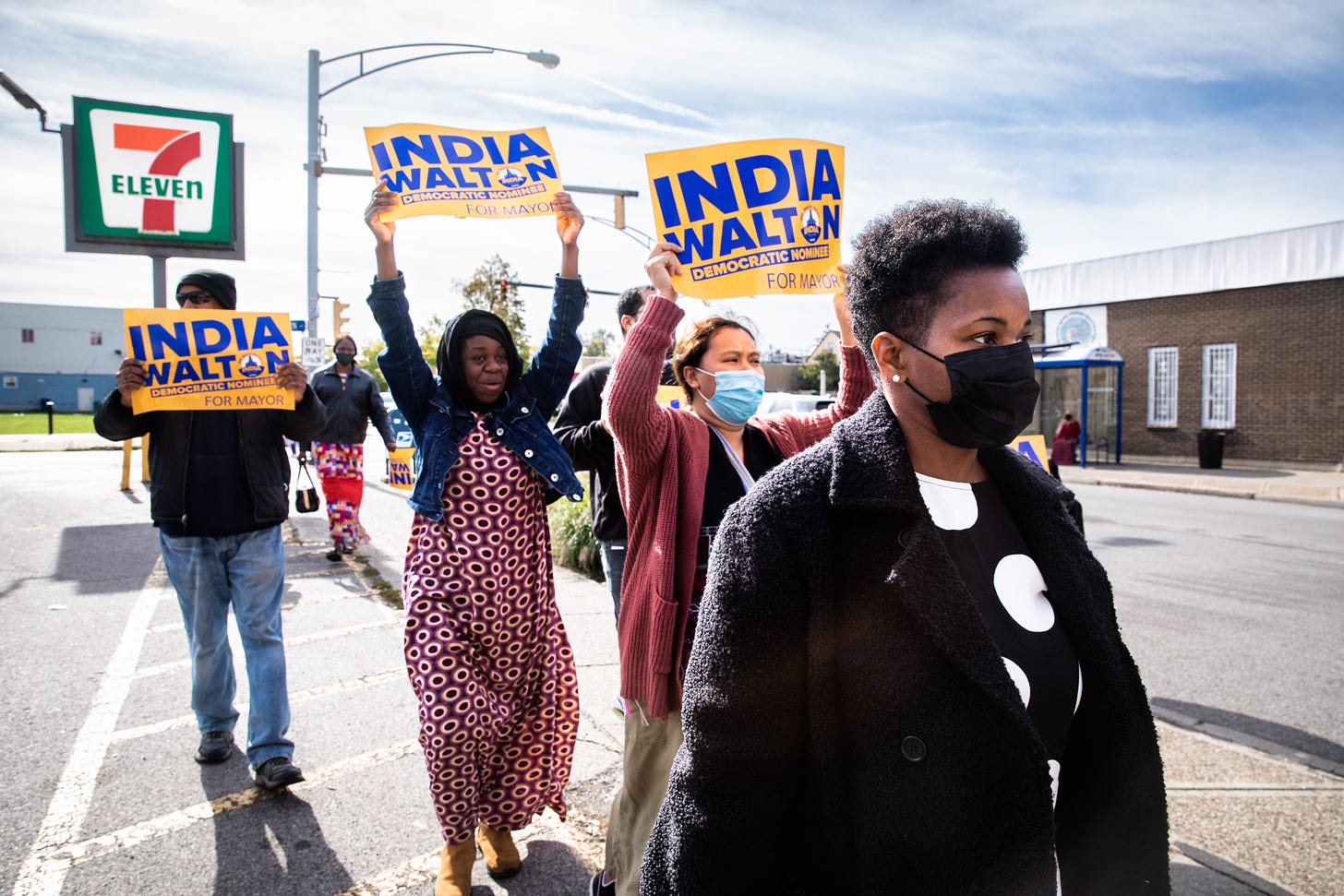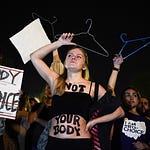India Walton’s life story is unusual in politics. Pregnant at age 14, a single mother, a high school dropout, a survivor of an abusive relationship, a mature student who got her nursing degree. This is a background that rarely leads to high office.
Despite the poverty she grew up in and escaped from, she ran two remarkable election campaigns in 2021. First she won an upset in the Democratic primaries to become the party’s nominee for mayor of Buffalo. She did this by besting a sitting mayor, Byron Brown. Then Brown, instead of accepting the norm of respecting his party’s nomination, ran a write-in campaign where he had the support of both Republicans and many Democratic officials. The chair of the New York State Democratic party absurdly compared her to a Klan leader (and then apologized). Many others in the party either waited until late in the election to offer endorsements, or refused to endorse her at all. Having the de facto support of the two party duopoly, Brown won.
Walton’s story says much about American politics, both in terms of the barriers to working class politicians rising and the ongoing tensions between the left and liberals in the Democratic party. To discuss Walton’s political successes and setbacks, I invited frequent guest Doug Bell to join me on the podcast.
The whole tumultuous saga reminded me of John Lennon’s song, “A Working Class Hero Is Something To Be” (the lyrics of which I mangle in the podcast).
Our conversation draws on two excellent reports on the Buffalo election, one from Keeanga-Yamahtta Taylor in The New Yorker and the other from Branko Marcetic in Jacobin.
(Podcast produced by Julia Elinore Peterson; post edited by Emily M. Keeler).
Share and Subscribe
If you liked this podcast, please share:
Or subscribe:















Share this post